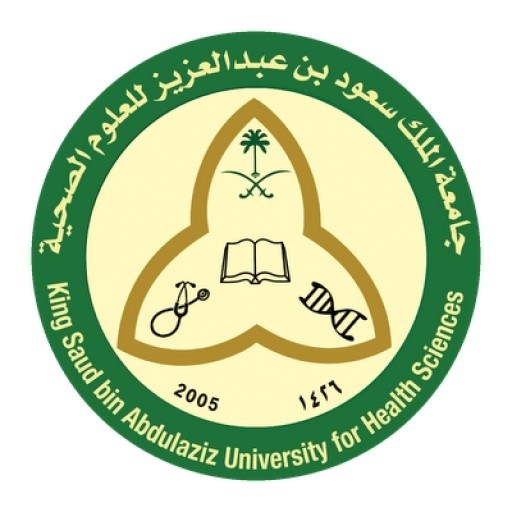Photos of university
The Master of Public Health in Epidemiology and Biostatistics at King Saud bin Abdulaziz University for Health Sciences is a comprehensive postgraduate program designed to equip students with the essential skills and knowledge required to excel in the fields of epidemiology, biostatistics, and public health research. This program aims to prepare health professionals and researchers to understand, investigate, and address complex health challenges through a rigorous curriculum that combines theoretical foundations with practical applications.
Students will engage in advanced coursework covering epidemiological methods, statistical techniques, research design, data analysis, and disease surveillance. The program emphasizes the importance of evidence-based decision-making in public health, ensuring graduates are capable of designing and implementing effective health interventions and policies. The curriculum is structured to foster critical thinking, analytical skills, and ethical standards necessary for conducting high-quality research.
Throughout the program, students will have opportunities to participate in research projects, utilize sophisticated data analysis tools, and collaborate with health organizations. They will also gain an understanding of the social, economic, and behavioral factors influencing health outcomes. The program prepares graduates for various career paths, including roles in governmental health agencies, research institutions, international health organizations, and academia, where they can contribute to disease prevention, health promotion, and health policy development.
King Saud bin Abdulaziz University for Health Sciences is committed to providing an innovative learning environment that combines theoretical instruction with practical experiences. Graduates of this program will be well-equipped to contribute significantly to the improvement of public health and to advance research in epidemiology and biostatistics. This program is ideal for individuals passionate about health sciences and committed to making a positive impact on community health through rigorous scientific research and policy development.
Semester 1
- Introduction to Healthcare Management
- Principles of Epidemiology
- Principles of Biostatistics
- Environmental Health
Semester 2
- Social & Behavioral Sciences for Healthcare
- Health Information Systems
Semester 3
- Statistical Models in Epidemiology
- Advanced Study Design I
- Advanced Biostatistics
- Nutritional Epidemiology / Genetic Epidemiology
- Healthcare Epidemiology
- Advanced Study Design II
- Meta-Analysis and Decision-Analysis
Semester 4
- Research Project
Requirements
- A Bachelor’s degree obtained from an accredited university in medicine, dentistry, nursing, pharmacy, radiography, laboratories, medical engineering, and management of health information, and information technology, plus two years of work experience within the healthcare sector.
- A minimum GPA of 3.75 out of 5.0.
- A minimum score of 550 in TOEFL examination or a minimum score of 6.0 in ILETS examination.
- Two academic recommendations by previous instructors.
- A letter of recommendation/consent from the employer.
- Applicants will be further interviewed on individual basis prior the final admission.
The financing of the Public Health in Epidemiology and Biostatistics program at King Saud bin Abdulaziz University for Health Sciences is primarily structured through a combination of governmental funding, institutional resources, and external grants. As a public university in Saudi Arabia, the institution benefits from substantial funding allocated by the Ministry of Education and the Ministry of Health, supporting the academic infrastructure, faculty salaries, research activities, and student services associated with this program. The university allocates a portion of its annual budget specifically for health sciences programs, ensuring the sustainability and development of curricula aligned with national health priorities.
Students enrolled in the program often receive financial support through scholarships provided by the Saudi government, which cover tuition fees, accommodation, and other related expenses. These scholarships are aimed at attracting talented individuals into the health sector, promoting advanced research, and filling critical public health positions within the country. Additionally, the program may benefit from external funding opportunities, such as research grants from health agencies, international health organizations, and academic collaborations, which help finance research projects, conference participation, and fieldwork.
The university also encourages partnerships with governmental health agencies and private sector entities, which can provide sponsorships and funding for specific research initiatives or educational activities. Furthermore, students may have access to part-time employment opportunities within the university or affiliated health institutions, contributing to their financial support during their studies.
Overall, the financing model of the Public Health in Epidemiology and Biostatistics program emphasizes a multi-source approach, combining public funding, scholarships, research grants, and external collaborations to ensure comprehensive financial support for students and the ongoing development of the program. This approach aims to foster a robust academic environment, promote research excellence, and prepare graduates to address public health challenges effectively within Saudi Arabia and the broader region.
The Master of Public Health (MPH) in Epidemiology and Biostatistics at King Saud bin Abdulaziz University for Health Sciences is a comprehensive postgraduate program designed to equip students with advanced knowledge and skills necessary for the fields of epidemiology and biostatistics within public health. This program aims to prepare graduates to address complex health issues through rigorous research, data analysis, and evidence-based decision-making. The curriculum typically combines core courses in epidemiological methods, biostatistical techniques, research methodology, and data management with specialized electives that focus on disease surveillance, outbreak investigation, clinical trial design, and public health informatics.
Students enrolled in the program are expected to gain proficiency in statistical software and data analysis tools, enabling them to interpret health data accurately, develop research proposals, and contribute to health policy formulation. The program emphasizes practical training through research projects, internships, and collaborative work with public health agencies and institutions. This hands-on approach ensures that students are well-prepared for roles in academia, government health departments, research organizations, and international health agencies.
The faculty members involved are typically experienced researchers and practitioners with expertise in epidemiology, biostatistics, and public health practice. The program also integrates ethical considerations and cultural competence in public health practice, especially relevant in the diverse population of Saudi Arabia.
Graduates of the MPH in Epidemiology and Biostatistics are expected to play vital roles in disease prevention, health promotion, health data management, and research. They will have the ability to design and evaluate intervention programs, analyze large health datasets, and contribute to the development of health policies that improve population health outcomes. Furthermore, the program often encourages lifelong learning and professional development, positioning its graduates to stay current with emerging trends and innovations in public health sciences.
Overall, this master’s program offers a rigorous academic experience aimed at producing skilled public health professionals capable of making significant contributions to health research, policy, and practice both regionally and internationally.

